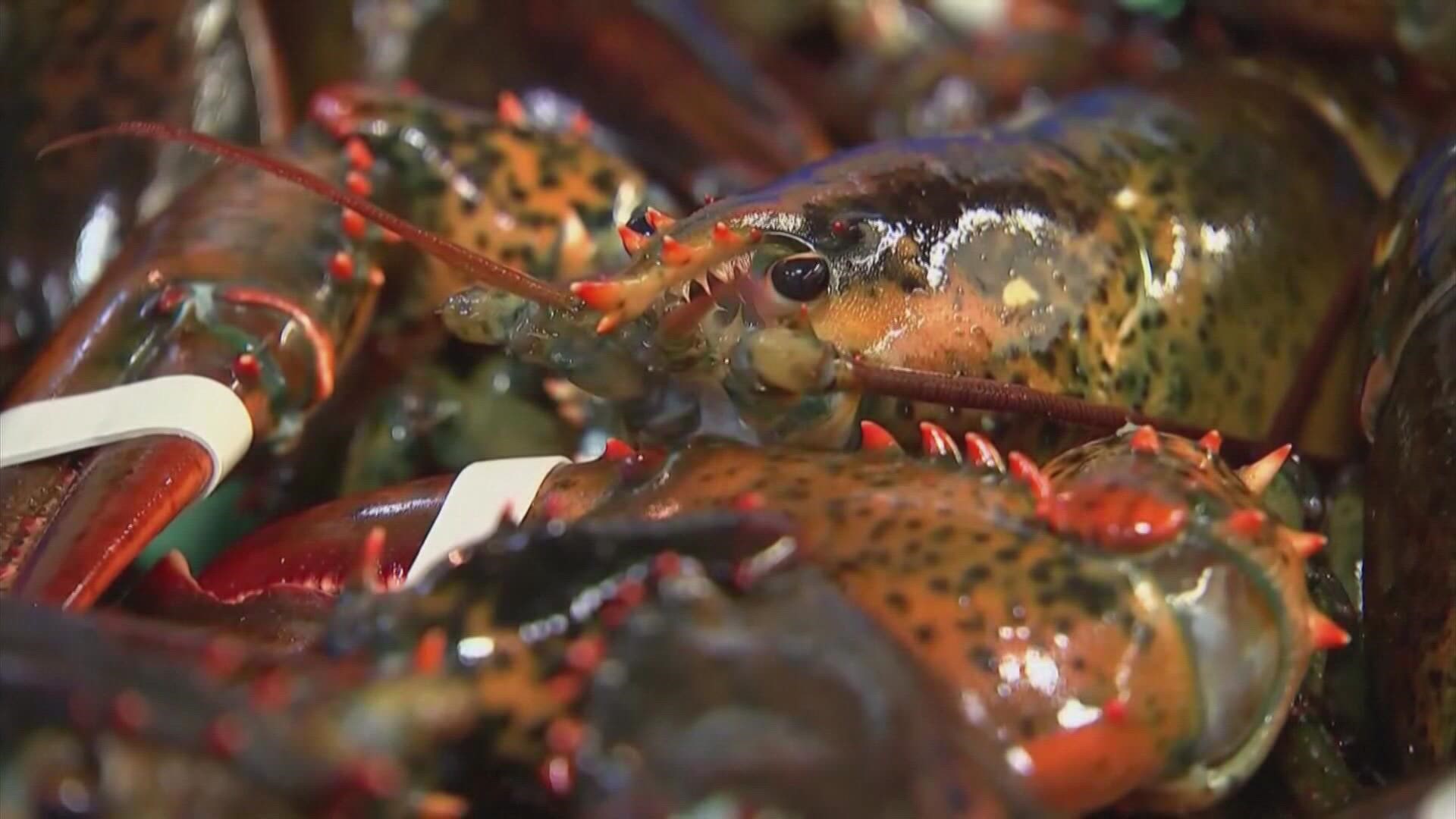MAINE, USA — A celebration for national conservation groups is also the latest blow to Maine's lobster fishing industry. On Friday, a federal judge ruled that new federal regulations do not go far enough to protect endangered North Atlantic right whales.
"For too long, the federal government has failed to act while North Atlantic right whales slip toward extinction,” Conservation Law Foundation Senior Attorney Erica Fuller said. "The court’s ruling today makes it clear that fishery managers must do more to protect this species. We must all commit to taking and funding every step necessary, because even one right whale death is too many."
The Center for Biological Diversity, the Conservation Law Foundation, and Defenders of Wildlife were defendants in the lawsuit.
"Lobster gear is a deadly threat to right whales, and the courts are telling the federal government to quit stalling and start taking real action. The Biden administration must work much harder to help the industry prevent these agonizing, deadly entanglements," Center for Biological Diversity Oceans Legal Director Kristen Monsell said.
However as conservation groups mark the ruling as a victory, Maine lobstermen are left with dozens of unanswered questions.
"Right now, we're just trying to figure it out. We'll continue to fight for the industry, it's worth fighting for," Virginia Olsen, a lobster harvester from Deer Isle/Stonington and member of the Maine Lobstering Union.
You can read United States District Judge James Boasberg's full ruling below:
In the ruling, Judge Boasberg reached the conclusion that federal regulators National Marine Fisheries Service violated the Marine Mammals Protection Act and the Endangered Species Act by not doing enough to protect endangered North Atlantic right whales from becoming entangled in fishing gear and dying.
"... Just around 370 North Atlantic right whales remain in existence. For centuries, these whales were imperiled by excessive hunting, but today the greatest human-caused threat comes from entanglement in fishing gear. Much of that gear is dropped into the ocean by crews fishing for lobster," Boasberg wrote in part in the court's ruling.
For years, Maine lobstermen have been tangled in legal battles over proposed regulations that lobster harvesters from Maine believe will negatively impact their livelihoods and the fishery itself. Conservation groups have long pushed for more strict regulations to help protect right whales.
"We would like to see right whales have protections, but I think we need to make sure those protections reflect where those right whales actually are," Olsen said. "Because like we've said before, we could take all the ropes out of LMA 1, but if you take all of the ropes out, are you saving any right whales? Because according to us, you're not."
Lobster harvesters in Maine have long argued that there have not been any right whale deaths connected to Maine lobstering gear in decades.
Congressmen Jared Golden, D-ME 2nd District, took a strong stance against the court ruling, writing in a statement in part that "Judge Boasberg’s ruling is the latest in what has been an unrelenting and groundless campaign against Maine lobstermen by elite, out-of-touch conservation groups and their city-dwelling, silver spoon donors and lobbyists."
"The Maine lobster community is working to understand the full implications of the ruling and determine next steps, and I will continue to fight alongside Maine lobstermen against yet another effort by special interests and unelected officials to ignore scientific data as they try to put lobstermen out of business," Rep. Golden continued in the statement.
A status hearing is set for July 22 following the ruling. Right now, it's unclear what the next steps are for lobstermen, or what regulations they could now face. Olsen is optimistic that they can reach a middle ground to protect right whales and preserve Maine jobs.
"It won't just be the right whales that are extinct. We as fishermen will be as well," Olsen said.


